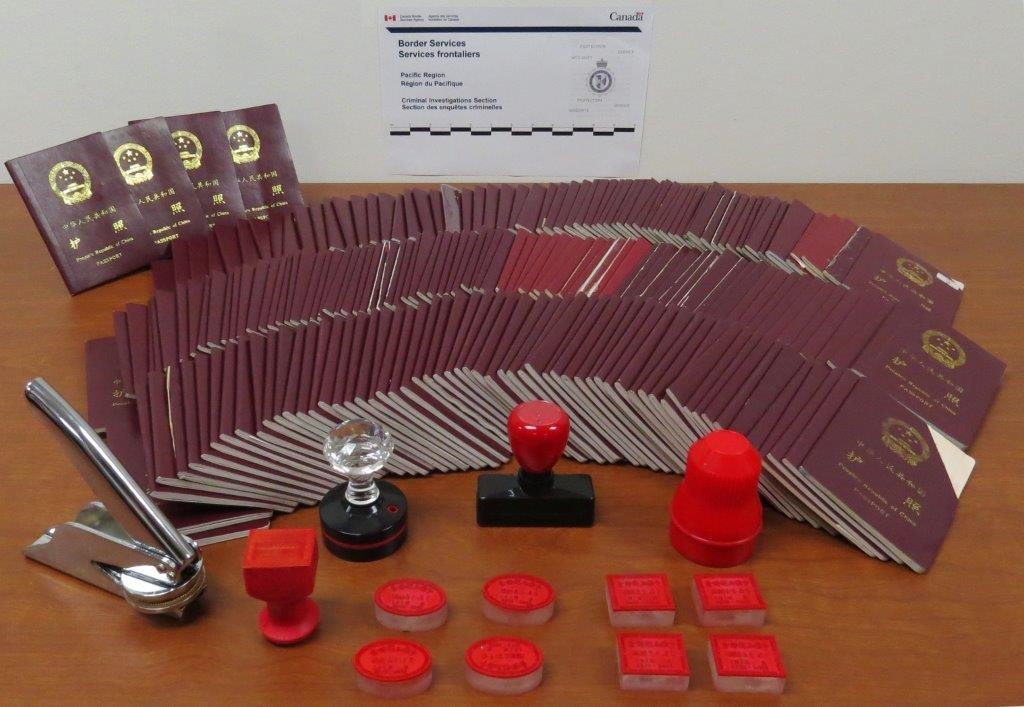West Vancouver mansion-owning satellite family to be deported after judge dismisses review

By ThinkPol Staff
A so-called “satellite family” from China involved in immigration fraud, who bought a multimillion dollar mansion in West Vancouver after immigrating to Canada through the Quebec investor program, are to be deported after a judge threw out the judicial review of their removal order.
49-year-old Xiao Qing Ling, her husband, and her two sons, landed as permanent resident under the Investor class for the Provincial Nominee Program for Quebec in December 2006, according to the case heard at the federal court in Ottawa[1]Li v. Canada (Citizenship and Immigration), 2018 FC 187 (CanLII), http://canlii.ca/t/hqkqk, retrieved on 2018-03-01.
On January 3, 2007, just ten days after landing, the the family returned to China, and over the next seven years, only visited Canada intermittently.
In 2011, approximately five years after first landing as permanent residents, the family applied to renew their permanent residence cards through New Can Consultants (Canada) Ltd. / Wellong International Investments Ltd, two unlicensed immigration consulting businesses offering services in Metro Vancouver, whose owners are doing jail time for industrial-scale immigration fraud[2]https://www.canada.ca/en/border-services-agency/news/2017/04/three_individualssentencedinlarge-scaleimmigrationfraudcase.html.
New Can fabricated false employment and other documents for renewing the expired PR cards for the Ling family, but they did need to use these false documents.
Immigration, Refugees and Citizenship Canada, then known as Citizenship and Immigration Canada, renewed Ling’s PR card after she falsely claimed she was absent from Canada for only 837 days.
An analysis of stamps in her passport and CBSA ICES traveller history showed that, in reality, Ling was absent from Canada for a total of 1,332 days in that five-year period.
The mother and her sons returned to Canada to live long term in 2014, but the father renounced his PR status in 2015, establishing a “satellite family”, where the main income owner lives in China while the dependants live in Canada.
In April 2016, while attempting to enter Canada from the United States, Ling was detained and interviewed by a Border Services Officer of the CBSA, who determined that she had failed to meet the residency obligations to maintain her PR status.
CBSA calculated she was absent for 1,261 days, quite substantially more than allowed in the 2011 to 2016 time frame and also concluded that Ling had directly or indirectly misrepresented herself in 2011 on her application to renew the PR cards, because she omitted dates of travel and did not properly calculate days absent from Canada.
In July 2017, she appealed the CBSA’s removal order to the Immigration Appeal Division, claiming relief on humanitarian and compassionate grounds[3]Li v Canada (Public Safety and Emergency Preparedness), 2017 CanLII 63732 (CA IRB), http://canlii.ca/t/h6cx8, retrieved on 2018-03-01.
While the IAD found that the family had “[…] positive establishment in Canada”, referring to the Applicant’s significant Canadian assets including the $8M home in West Vancouver acquired in 2014 (it and other Canadian assets are worth well over $10M), and to the fact that her children started to attend school in Canada in 2014, the division concluded that Ling’s efforts post-2014 were, “more likely than not an effort to diversify the family’s assets out of China and to demonstrate establishment in the instant proceedings.”
The IAD dismissed Ling’s appeal.
“She (and certainly her husband) are sophisticated and aware of the immigration rules, and it is simply not believable that they were innocent “victims” of New Can/Wellong,” Sterling Sunley wrote in the IAD decision. “The extent of the breach is great, and it is not significantly mitigated by any reasons given by the appellant for her departure and failure to return sooner.”
Federal court judge Henry S. Brown did not find anything amiss with the IAD decision.
“Overall, I have come to the conclusion that the Decision is justifiable, transparent and intelligible,” federal court judge Henry S. Brown wrote, dismissing the judicial review. “In addition, the Decision falls within the range of possible, acceptable outcomes which are defensible in respect of the facts and law.”
CBSA removal orders, which are stayed during judicial reviews, come back into effect if the reviews are dismissed, and those under such orders are required to leave Canada immediately.
“If you fail to appear for a removal interview or a scheduled removal date, the CBSA will issue a Canada-wide warrant for your arrest,” CBSA warns. “Once arrested, the CBSA may detain you in a holding facility before removal.”
[Photo Credit: CBSA]
References
| 1. | ↑ | Li v. Canada (Citizenship and Immigration), 2018 FC 187 (CanLII), http://canlii.ca/t/hqkqk, retrieved on 2018-03-01 |
| 2. | ↑ | https://www.canada.ca/en/border-services-agency/news/2017/04/three_individualssentencedinlarge-scaleimmigrationfraudcase.html |
| 3. | ↑ | Li v Canada (Public Safety and Emergency Preparedness), 2017 CanLII 63732 (CA IRB), http://canlii.ca/t/h6cx8, retrieved on 2018-03-01 |



